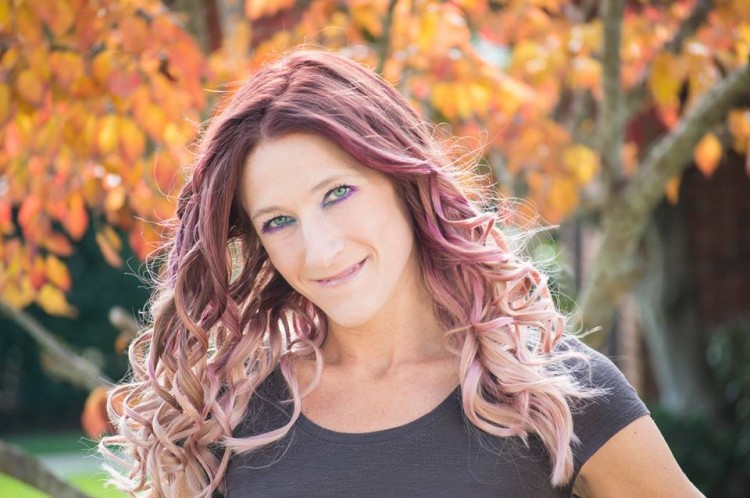When You’re Afraid Accepting Your Chronic Illness Is ‘Giving Up’
For the longest time, I was hesitant to use the phrase “chronic illness” to describe the steady decline in my body’s ability to function “normally.” I was hesitant because I thought if I told people I was chronically ill, they would think I had given up. Or more importantly, I would think I had given up.
I thought accepting my illness as chronic meant I had become hopeless.
Hope, to me, had always meant wishing for desired outcomes. Having hope in regards to my illnesses meant clinging to the idea that someday I would be fixed or cured. Hope rested in the expectation that the pain would, one day, be gone.
It’s been over five years of functioning daily with some sort of pain. This past year,
my daily pain level has been a five or above. If a friend asks how I’m feeling and I respond with, “I’m feeling good today,” it means my pain level is at a five. Most people go to the emergency room with pain levels of six or seven, just to give you some context. I feel exhausted (first-trimester-pregnancy type of exhausted) and flu-like every single day. My joints and muscles are stiff and sore and I experience numbness and tingling in my arms, legs, chest and back multiple times per day. And it’s not going away. It’s been over a year of all of these symptoms daily. All of them daily.
I don’t write this with the intention of evoking sympathy or branding myself a martyr. I write this solely to draw awareness to how devastating my reality had to get before I would use the word “chronic.”
I have just in the past few months started to make peace with the idea that I have a chronic illness. I have several, actually, and they are not going to magically disappear like I had hoped. I’m not going to wake up one day and suddenly feel better. The reality is that there will be good days (remember what “good” now means) and there will be bad days. There will be days when it takes 20 minutes to get out of bed and days when it takes two hours. Days when I can show up for people and keep my commitments and days when I can’t.
But owning my illness as “chronic” does not mean I have become void of hope. It doesn’t mean I have given up. It means I have reached a new level of acceptance and understanding of the path I am walking. Hope no longer depends on the absence of symptoms; it is found in the midst of the symptoms, despite the symptoms.
Hope now comes in the unwavering confidence that no matter how I’m feeling, I am loved and accepted, as I am, in each and every moment.
Hope comes in the knowledge that I am never alone.
Hope comes in the permission I allow myself to care for a body that needs a extra love.
The hardest, most crucial piece of self-care for me has been slowing down.
I’m used to operating in one of two speeds: fast and faster. I’ve always been this way. I don’t walk, I run; I don’t jump, I leap. I’m a doer, a busybody; I thrive in chaos and commotion. Or rather, I used to thrive in chaos and commotion.
But the doing and the running and the crazy busy life is not fit for me anymore. My body can’t handle it; my illness can’t afford it. I am slowly learning how to slow down. How to rest when my body is screaming “Stop!” How to recognize my limits and most importantly, how to say no.
It’s becoming obvious that the key to my slowing down rests in my ability to say no. I’m still working on this; I’m a people-pleaser and a giver — helping others brings me joy. But giving myself to others is starting to cost me my health, a price I am no longer willing to pay.
I am beginning to find joy in caring for myself the way I used to care for others.
I’m learning to let go of people’s response to me telling them no — their emotional reaction is not my responsibility. My friends and family won’t love me any less if I don’t attend their child’s birthday party.
And I am learning that slowing down isn’t just vital for my body, but my mind as well. Thoughts swirl, fears crop up, guilt, remorse and self-pity start to creep in. That’s part of why I loved staying busy — to avoid my thoughts and feelings. But I’m finally learning how to be still. How to stop my thoughts from taking me too far out of reality. I focus on my breath. I use grounding techniques. I look at me feet and feel my legs resting on top of my bed. As I listen to the rhythm of the clock as it ticks, my thoughts slowly and steadily fade away.
Accepting my illness as chronic doesn’t mean I’ve given up on life. It doesn’t mean I’m void of hope. Chronic illness is not an aversion to joy or an absence of peace. It’s just a path that was chosen for me. And I’m discovering that the longer I walk this path with an open heart and mind, the more I find myself.

Follow this journey on Feelings and Faith.
The Mighty is asking its readers the following: Share with us the moment, if you’ve had it, where you knew everything was going to be OK. If you’d like to participate, please send a blog post to community@themighty.com. Please include a photo for the piece, a photo of yourself and 1-2 sentence bio. Check out our Share Your Story page for more about our submission guidelines.
